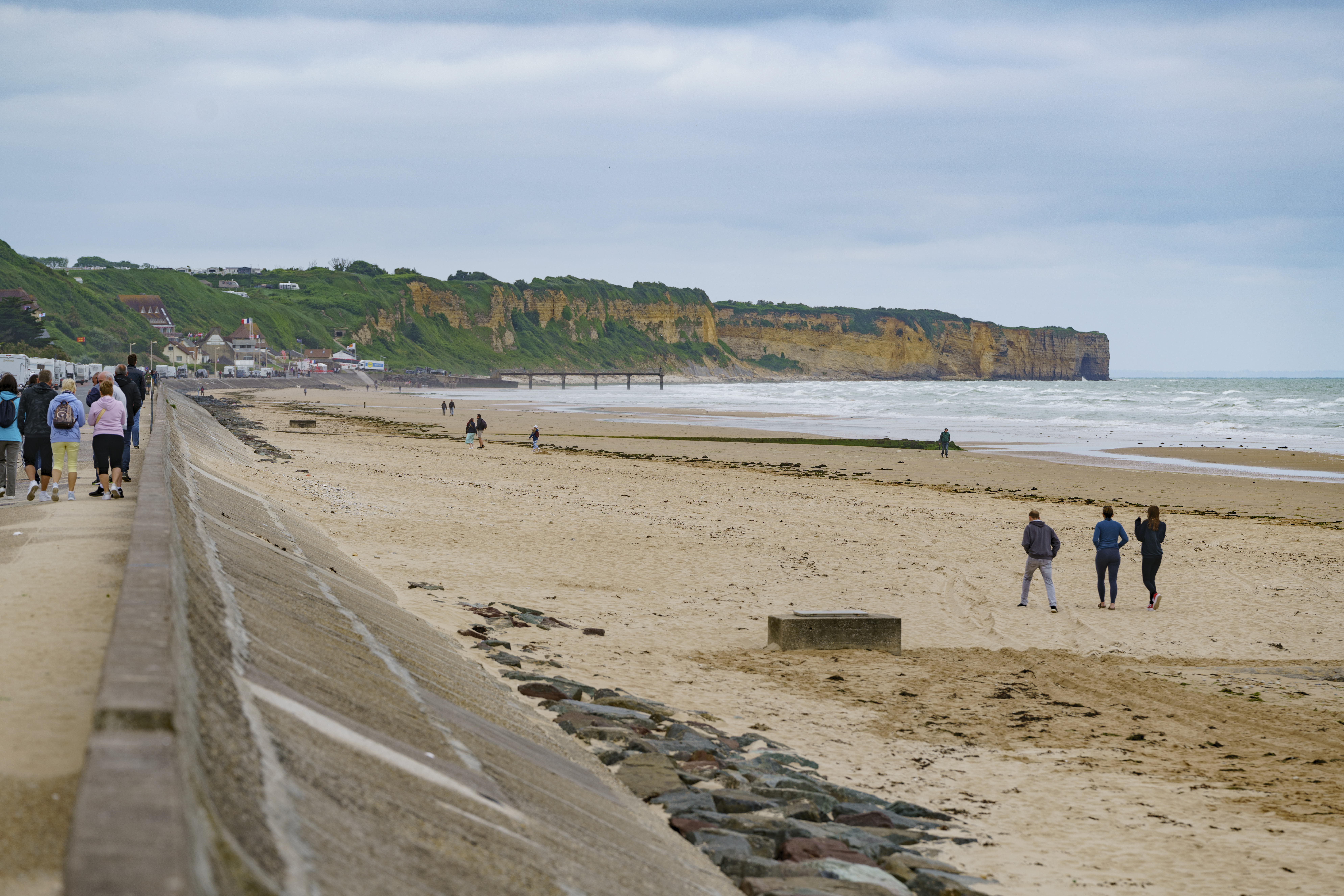

Marines came ashore at Normandy by aircraft rather than landing craft on Tuesday to mark the 80th anniversary of D-Day due to sea conditions, an official familiar with the demonstration told Task & Purpose.
“Commanders weren’t willing to accept the risk of a high sea state for a demonstration,” the official said on Wednesday.
About 120 U.S. Marines had been expected to come ashore in Landing Craft, Utility boats at Omaha Beach on Tuesday along with French troops.
But during rehearsals early on Tuesday morning, it became clear that the sea conditions at low tide would have caused the landing craft to ground on their way to the beaches due to the weight of the equipment onboard, according to U.S. Navy operations planners. Although the 120 Marines were not allowed to conduct the amphibious demonstration at Omaha Beach, about 40 Marines and sailors were flown on helicopters from the dock landing ship USS Oak Hill and amphibious assault ship USS Wasp to attend a service at the American National Cemetery in Normandy.
Subscribe to Task & Purpose today. Get the latest military news and culture in your inbox daily.
There may be an opportunity on Thursday for U.S. Marines to come ashore at Normandy via landing, the planners said, but it is too early to tell.
The amphibious landings were supposed to be part of this year’s ceremonies to honor the anniversary of the Allied invasion of Europe, one of the most decisive moments of World War II. A total of 1,200 U.S. troops are taking part in this year’s events which are scheduled to include a parachute drop on June 9.
On June 6, 1944, about 160,000 Allied troops landed on the Normandy beaches, of which roughly 73,000 were U.S. service members and about 83,000 came from Britain, Canada, and France.

Through an ingenious deception campaign that included creating a false army, the Allies had convinced the Germans that the invasion would take place elsewhere in France. But the troops who went ashore that day faced stiff resistance, especially at Omaha Beach.
On D-Day alone, 4,414 Allied troops were killed, including 2,501 Americans. More than 5,000 other Allied service members were wounded.
The problems Marines faced this year in attempting to launch amphibious landings at Normandy underscore how difficult D-Day was 80 years ago, said Terry Welch, a U.S. Army Europe and Africa spokesman.
“Everything that could go wrong did go wrong, but the Allies’ superior training and dedication allowed them to adapt and win the day, achieving what Ernie Pyle called ‘a pure miracle,’” Welch told Task & Purpose.
The latest on Task & Purpose
- Marines will land on Normandy beaches to commemorate D-Day’s 80th anniversary
- Air Force raises maximum amount for retention bonuses to $180,000
- Former Admiral’s $500,000 retirement job was a bribe, prosecutors say
- Army special operations officer under investigation after shooting
- Meet the soldier who is taking the Army combatives scene by storm